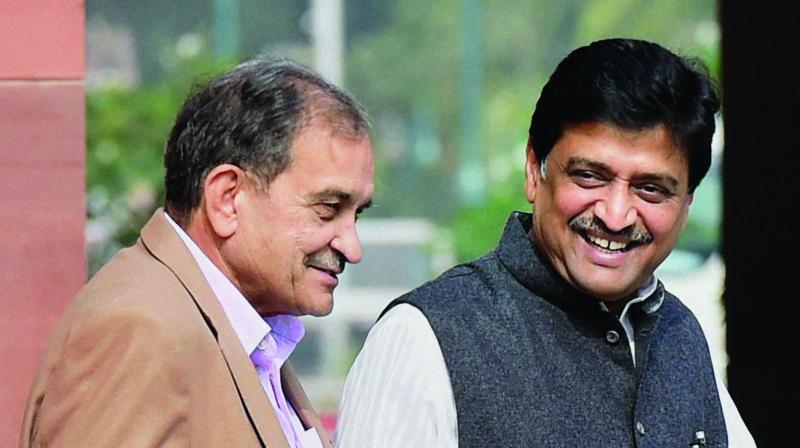Adarsh: No clean chit for Congress, but BJP on thin ice

Mumbai: Little was left to be done in Adarsh society scam when the BJP came to power in 2014. The CBI had already filed the chargesheet in the case and in 2013, the then state governor K. Sankaranarayanan, a Congress appointee, had turned down CBI’s plea to prosecute Mr Chavan under the IPC. Mr Sankarnarayanan felt that there was not enough evidence to try Mr Chavan for conspiracy. However, the CBI tried its luck once again after the BJP came to power and on November 4, 2016 the present governor Ch. Vidyasagar Rao gave the sanction to prosecute Mr Chavan under the IPC. The recent high court order was only on the limited ground — which is whether Mr Chavan can be prosecuted under the IPC or not. The HC ruled that the CBI had not presented any fresh evidence for the governor to change its earlier decision. However, the charges against Mr Chavan under the Prevention of Corruption act still stay and he could be tried for that. However, the high court order clearly demonstrated that the CBI had made no progress in the investigation even after the BJP came to power.
The Congress cannot salvage anything from the Adarsh scam as the damage has already been done. There are two facts of the case which are not disputed by anyone and which raise the suspicion on Mr Chavan’s ‘quid pro quo’ role in the alleged scam. First fact is that it was Mr Chavan who suggested inclusion of civilians as members of Adarsh society. Initially, there were 40 members of the proposed society and all of them belonged to defence services or they were members of services paid from Defence Service Estimates. However, on Mr Chavan's suggestion, who was the revenue minister in 2000, civilian members were included. One of the civilian members was Mr Chavan’s sister-in-law Seema Sharma.
The other case fact that is being used against Mr Chavan is that the non-deduction of 15 per cent recreation ground. After adding new members, the society needed more FSI (floor space index) to build houses for the new members. For that purpose, the society requested for non-deduction of 15 per cent RG, so that land can also be used to get additional FSI. The society’s request was rejected by the Urban Development department in April 2009. However, Mr Chavan, who was then the chief minister of Maharashtra, approved it in May 2009. In the mean time, Mr Chavan’s mother-in-law and brother of his father-in-law also got flats in the society.
The CBI has to prove that both these decisions were taken by Mr Chavan in order get three flats for his in-laws in the society. The erstwhile governor refused sanction to prosecute Mr Chavan for want of evidence. However, the trial court refused to drop Mr Chavan’s name from the list of accused persons on the ground that he can be prosecuted under Prevention of Corruption act for which sanction was not needed. This was also an indication that there were enough grounds to try Mr Chavan. The high court also endorsed the trial court’s order.
After BJP came to power in the state and Centre, the CBI moved the governor’s office seeking sanction to prosecute Mr Chavan under the IPC and submitted the three-year-old Justice J.A. Patil Inquiry Commission report and the high court order refusing permission to drop Chavan’s name as fresh evidence. The high court set aside the sanction as both these documents are inadmissible as evidence.
“This is political vendetta and an attempt from political rivals to malign my image,” Mr Chavan said after the high court order. The CBI needed new documents, statements of witnesses to prove that the two decisions taken by Mr Chavan were part of a conspiracy to use his position for personal gain. The CBI has not got any such new evidence. In 2014, the BJP went all guns blazing on corruption charges against the Congress, which had no defence. The Congress still has no defence, but the BPP too is fast running out of steam.

